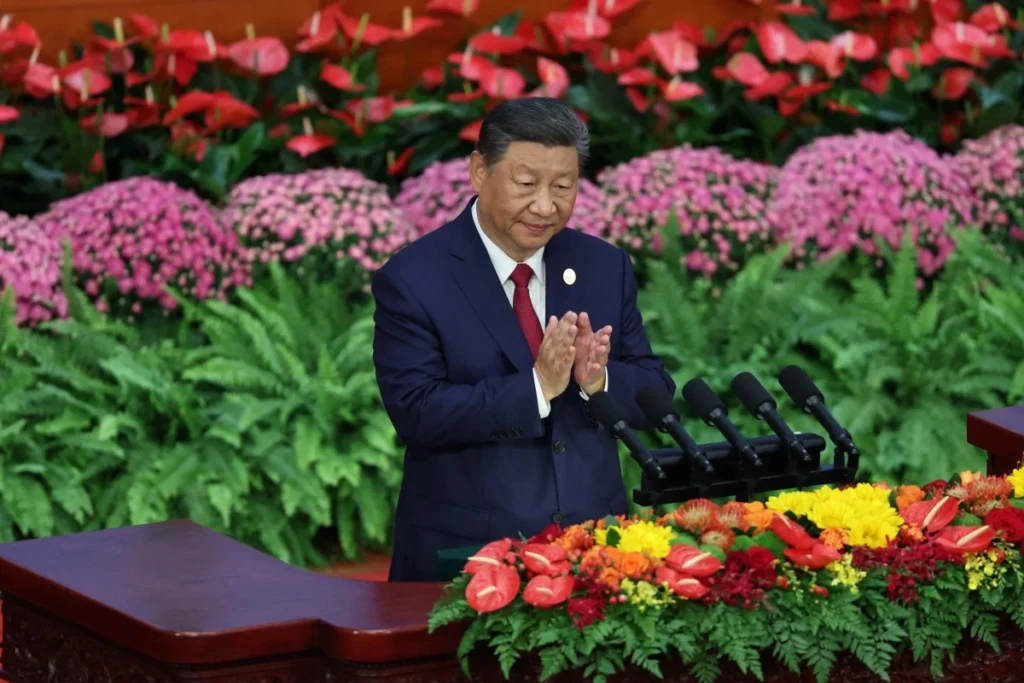Chinese Foreign Minister Wang Yi has embarked on visits to Namibia, the Republic of the Congo, Nigeria, and Chad, marking the 35th consecutive year that a Chinese foreign minister’s first overseas trip of the year is to Africa.
This enduring tradition highlights the deep-rooted partnership and mutual respect between China and the African continent.
For decades, these annual visits have underscored China’s commitment to addressing Africa’s pressing challenges, including poverty alleviation, infrastructure development, and sustainable growth.
Raphael Obonyo, an African public policy analyst, noted, “China believes in win-win cooperation, engaging with Africa to foster mutual growth.”
China’s diplomatic efforts have significantly bolstered ties with African nations, particularly through the Forum on China-Africa Cooperation (FOCAC). Over the years, these visits have facilitated key discussions and agreements, enhancing cooperation across various sectors.
This year’s tour is expected to focus on strengthening economic partnerships in the four countries. Obonyo added, “The four nations and Africa anticipate strengthened cooperation, especially in infrastructure, where China has made substantial contributions.”
The visit also aims to boost people-to-people exchanges beyond economic interests, signaling a mutual commitment to peace, stability, and development.
Mao Ning, spokeswoman for China’s foreign ministry, emphasized that Wang’s visit seeks to implement the outcomes of the Beijing Summit of FOCAC and deepen practical cooperation in various fields. The aim is to promote sustained and in-depth development of China-Africa relations, enhancing the strategic partnership between both sides.
China’s Strategic Investments for Africa’s Future
China’s 2025 investment strategy is poised to reshape Africa’s development landscape significantly.
During the recent FOCAC, President Xi Jinping announced a commitment of $51 billion aimed at enhancing infrastructure, agriculture, and technology across the continent. This funding will support 30 critical infrastructure projects, reflecting China’s ongoing focus on connectivity within Africa.

A crucial aspect of this investment plan is the promise to create one million jobs in Africa, reinforcing China’s role as a pivotal development partner.
The financing package will be distributed through various channels, including loans and grants, with a strong emphasis on public-private partnerships (PPPs) to stimulate economic growth while minimizing debt risks.
Moreover, China is increasingly targeting sectors such as digital technology and renewable energy. In countries like Zambia and Nigeria, projects are underway to bolster local capabilities and promote sustainable practices.
This shift towards “small and beautiful” projects aims to address criticisms of the sustainability of larger investments by focusing on community-level impacts and environmental considerations.
As China continues to solidify its influence in Africa amidst growing competition from Western nations, its investment strategies cater to its economic interests while also fostering a mutually beneficial relationship that supports Africa’s aspirations for modernization and self-sufficiency.
The visit comes at a time when global geopolitical dynamics are shifting, with China positioning itself as a leading partner in Africa’s development. By prioritizing Africa in its foreign policy agenda, China underscores the continent’s importance in its broader global strategy.
These visits also serve as a platform to reinforce China’s commitment to multilateralism and its role in global governance. Africa, with its vast resources and strategic location, plays a critical role in China’s Belt and Road Initiative, further strengthening the ties between the two regions.
Analysts believe that these ongoing engagements will yield long-term benefits for both sides. For Africa, China’s involvement translates into much-needed investments in critical sectors, while for China, it solidifies its influence in a region that holds significant economic and strategic value.
As such, Wang Yi’s African tour is not just a diplomatic gesture but a reaffirmation of China’s dedication to fostering enduring partnerships with Africa. The outcomes of these visits are expected to shape the future trajectory of China-Africa relations, ensuring mutual growth and shared prosperity.
READ ALSO: Ablakwa Denounces Fake News, Vows Legal Action Against NPP MP




















